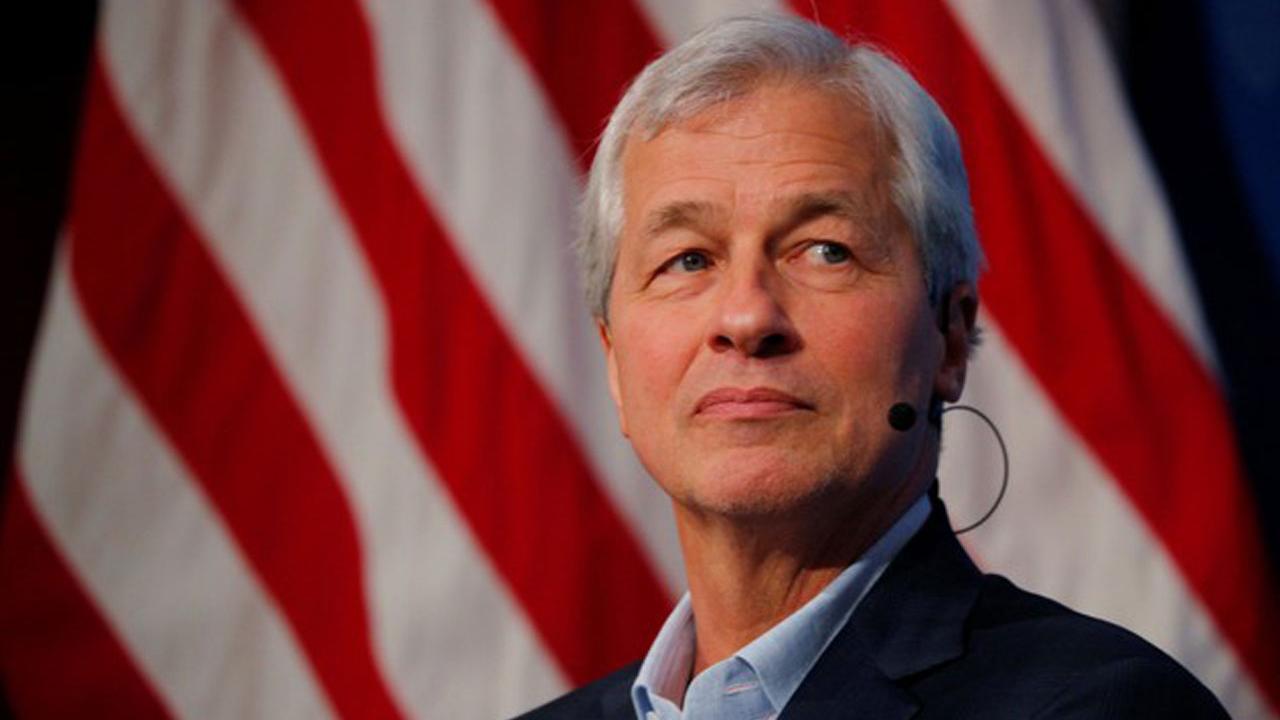JPMorgan Chase CEO Jamie Dimon: Socialism a 'big mistake'
JPMorgan Chief Executive Jamie Dimon warned at a quarterly meeting of the Business Roundtable (BR) that socialism would be a “huge mistake."
“When government owns and controls companies used for political purposes, not economic purposes, it usually means jobs and votes and can lead to huge deterioration,” said Dimon, who chairs the BR.
The executive says the U.S. remains the most prosperous in the world, but policies need to be fixed to improve growth. The past 10 years the U.S. economy has grown by 20 percent, but should have grown 40 percent coming out of such a deep recession, amounting to $4 trillion in lost GDP, according to Dimon. Policies, including health care, infrastructure and immigration are holding back the U.S. economy, he says, not secular stagnation. “It’s a disgrace and needs fixing,” said Dimon.
Tom Linebarger, chief executive of engine maker Cummins and chair for the BR's Trade and International Committee, says businesses are open to looking at policy proposals. “We recognize there are issues of fairness,” he said. “We need acknowledge what we’re getting and what we’re giving up, [but] the capitalist system has created the single-largest, most successful economy.”
The executives spoke out on the same day that Democratic presidential hopeful Sen. Bernie Sanders championed democratic socialism, saying the economy is not working for the working class. Sanders says Wall Street and Republicans don't oppose all forms of socialism. “[They] may hate Democratic socialism because it benefits working people, but they absolutely love corporate socialism that benefits Trump and other billionaires," said Sanders. He added, “I believe in democratic socialism that works for the working families."
Socialism wasn’t the only risk, the executives warned about. Executives now see trade as the biggest risk to the economy.
Net taxes for businesses are now higher than before tax reform because of tariffs, says Linebarger. The CEO of Cummins says there's a significant opportunity for improvement and lengthening of the business cycle if tariffs are removed. “Tariffs in place now are a significant burden and will be for some time a concern as far as the impact on the U.S. and Chinese economies,” he said. "If the US-Mexico-Canada deal were to pass that would boost the economy."
The impact from tariffs will take time to be felt, say executives. There is long-term damage to supply chains and competitiveness because companies may not move immediately or take time to adapt and adjust, all of which can slowly hurt growth and jobs. Businesses are already moving out of China, says Linebarger, to other countries. Executives are hopeful President Trump and Chinese President Xi will meet at the G-20 later this month and get trade talks back on track.
Businesses are also concerned that mixing national security with trade, as President Trump did with Mexico using tariffs as a threat to get our southern neighbor to stem the flow of immigrants, sets a dangerous precedent. “There are border issues and we are concerned, but mixing trade tools with national security tools lessens credibility for national security because you can’t tell what you’re fighting,” said Linebarger. “It creates volatility in trade situations for business.”
CLICK HERE TO GET THE FOX BUSINESS APP
For now, uncertainty about trade and slowing global growth caused respondents to the Business Roundtable’s quarterly survey to lower expectations for sales, capital investment and hiring for the next six months. Though executives still expect spending, hiring and sales to remain in a healthy range.
The CEO Economic Outlook Index still signals a positive direction for the economy and remains well above a level that would indicate a recession is coming. CEOs are projecting GDP of 2.6 percent this year, up one tenth from the 2.5 percent projected for the year last quarter.
The survey was conducted May 16 through June 3 -- a time during which the Trump administration increased the level of tariffs on more than $200 billion in imports from China and threatened to use tariffs on Mexican imports over immigration on the southern border.




















